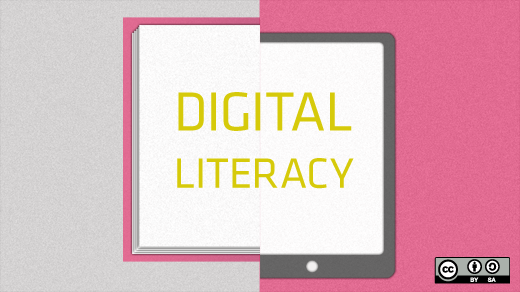A good literature review is critical for academic research in any field, whether it is for a research article, a critical review for coursework, or a dissertation. In a recent article, I presented detailed steps for doing a literature review using open source software.
The following is a brief summary of seven free and open source software tools described in that article that will make your next literature review much easier.
1. GNU Linux
Most literature reviews are accomplished by graduate students working in research labs in universities. For absurd reasons, graduate students often have the worst computers on campus. They are often old, slow, and clunky Windows machines that have been discarded and recycled from the undergraduate computer labs. Installing a flavor of GNU Linux will breathe new life into these outdated PCs. There are more than 100 distributions, all of which can be downloaded and installed for free on computers. Most popular Linux distributions come with a "try-before-you-buy" feature. For example, with Ubuntu you can make a bootable USB stick that allows you to test-run the Ubuntu desktop experience without interfering in any way with your PC configuration. If you like the experience, you can use the stick to install Ubuntu on your machine permanently.
2. Firefox
Linux distributions generally come with a free web browser, and the most popular is Firefox. Two Firefox plugins that are particularly useful for literature reviews are Unpaywall and Zotero. Keep reading to learn why.
3. Unpaywall
Often one of the hardest parts of a literature review is gaining access to the papers you want to read for your review. The unintended consequence of copyright restrictions and paywalls is it has narrowed access to the peer-reviewed literature to the point that even Harvard University is challenged to pay for it. Fortunately, there are a lot of open access articles—about a third of the literature is free (and the percentage is growing). Unpaywall is a Firefox plugin that enables researchers to click a green tab on the side of the browser and skip the paywall on millions of peer-reviewed journal articles. This makes finding accessible copies of articles much faster that searching each database individually. Unpaywall is fast, free, and legal, as it accesses many of the open access sites that I covered in my paper on using open source in lit reviews.
4. Zotero
Formatting references is the most tedious of academic tasks. Zotero can save you from ever doing it again. It operates as an Android app, desktop program, and a Firefox plugin (which I recommend). It is a free, easy-to-use tool to help you collect, organize, cite, and share research. It replaces the functionality of proprietary packages such as RefWorks, Endnote, and Papers for zero cost. Zotero can auto-add bibliographic information directly from websites. In addition, it can scrape bibliographic data from PDF files. Notes can be easily added on each reference. Finally, and most importantly, it can import and export the bibliography databases in all publishers' various formats. With this feature, you can export bibliographic information to paste into a document editor for a paper or thesis—or even to a wiki for dynamic collaborative literature reviews (see tool #7 for more on the value of wikis in lit reviews).
5. LibreOffice
Your thesis or academic article can be written conventionally with the free office suite LibreOffice, which operates similarly to Microsoft's Office products but respects your freedom. Zotero has a word processor plugin to integrate directly with LibreOffice. LibreOffice is more than adequate for the vast majority of academic paper writing.
6. LaTeX
If LibreOffice is not enough for your layout needs, you can take your paper writing one step further with LaTeX, a high-quality typesetting system specifically designed for producing technical and scientific documentation. LaTeX is particularly useful if your writing has a lot of equations in it. Also, Zotero libraries can be directly exported to BibTeX files for use with LaTeX.
7. MediaWiki
If you want to leverage the open source way to get help with your literature review, you can facilitate a dynamic collaborative literature review. A wiki is a website that allows anyone to add, delete, or revise content directly using a web browser. MediaWiki is free software that enables you to set up your own wikis.
Researchers can (in decreasing order of complexity): 1) set up their own research group wiki with MediaWiki, 2) utilize wikis already established at their universities (e.g., Aalto University), or 3) use wikis dedicated to areas that they research. For example, several university research groups that focus on sustainability (including mine) use Appropedia, which is set up for collaborative solutions on sustainability, appropriate technology, poverty reduction, and permaculture.
Using a wiki makes it easy for anyone in the group to keep track of the status of and update literature reviews (both current and older or from other researchers). It also enables multiple members of the group to easily collaborate on a literature review asynchronously. Most importantly, it enables people outside the research group to help make a literature review more complete, accurate, and up-to-date.
Wrapping up
Free and open source software can cover the entire lit review toolchain, meaning there's no need for anyone to use proprietary solutions. Do you use other libre tools for making literature reviews or other academic work easier? Please let us know your favorites in the comments.







3 Comments